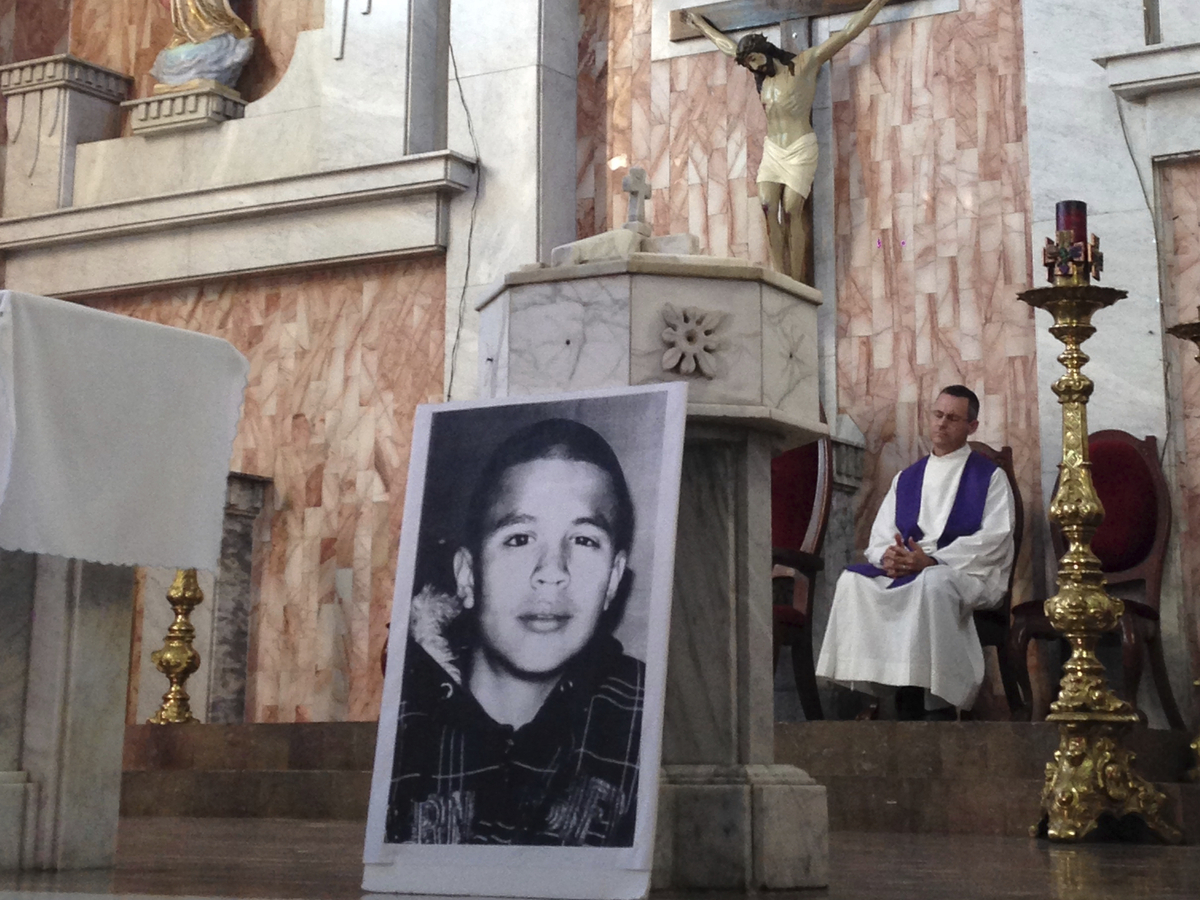
A photo of Jose Antonio Elena Rodriguez, who was fatally shot by a U.S. Border Patrol near the Mexico-U.S border, rests on a church altar during a memorial mass in Nogales, Sonora, Mexico. A federal appeals court heard arguments on whether his family can file a civil lawsuit in U.S. courts. Valeria Fernandez/AP hide caption

A photo of Jose Antonio Elena Rodriguez, who was fatally shot by a U.S. Border Patrol near the Mexico-U.S border, rests on a church altar during a memorial mass in Nogales, Sonora, Mexico. A federal appeals court heard arguments on whether his family can file a civil lawsuit in U.S. courts.
Valeria Fernandez/APA federal appeals court in San Francisco heard arguments Friday in a case testing whether a person in another country has any protection under the U.S. Constitution when he has been harmed by an agent of the United States government.
The description of the killing at issue in Rodriguez v. Swartz is not in dispute. On Oct. 10, 2012, 16-year-old Jose Antonio Elena Rodriguez of Nogales, Mexico, was walking home alone when he was shot 10 times — eight times in the back — on a street that runs alongside the U.S.-Mexico border. His assailant was U.S. Border Patrol agent Lonnie Swartz who was standing on the Arizona side of the border when he killed Elena Rodriguez.
As NPR's John Burnettt reported last year, Mexican authorities say "Swartz emptied his service handgun on the 16-year-old, reloaded, and kept firing."
Swartz has claimed he was acting in self-defense when confronted by rock throwers on the other side of the border. The Associated Press reports U.S. Customs and Border Protection has surveillance video footage of the incident but has refused to release it.
At the hearing before the U.S. Ninth Circuit Court of Appeals, a three-judge panel was asked to consider whether Elena Rodriguez' family can bring a civil lawsuit against Swartz under the Fourth Amendment (which bars unreasonable seizure) and the Fifth Amendment (which guarantees due process).
Swartz's attorney, Sean Chapman argued no, because the victim, who had never lived in this country, did not have a "significant voluntary connection" with the United States, as required by past U.S. Supreme Court decisions. He also argued that the victim can't claim constitutional protections since the harm was committed on Mexican territory. (Chapman's Motion To Dismiss is found here.)
American Civil Liberties Union attorney Lee Gelernt countered by arguing that the Nogales region, on both sides of the border, is an intertwined community and that the victim, Elena Rodriguez, was often left in the care of his grandmother who was a legal permanent resident in the U.S. and now an American citizen. Gelernt also said a Border Patrol agent shouldn't be allowed to kill someone with impunity.
The judges said they would not rule until after the U.S. Supreme Court decides a similar case next year known as Hernandez v. U.S.
Meanwhile, Swartz is still facing a charge of second-degree murder in Arizona. He has pleaded not guilty.
No comments:
Post a Comment